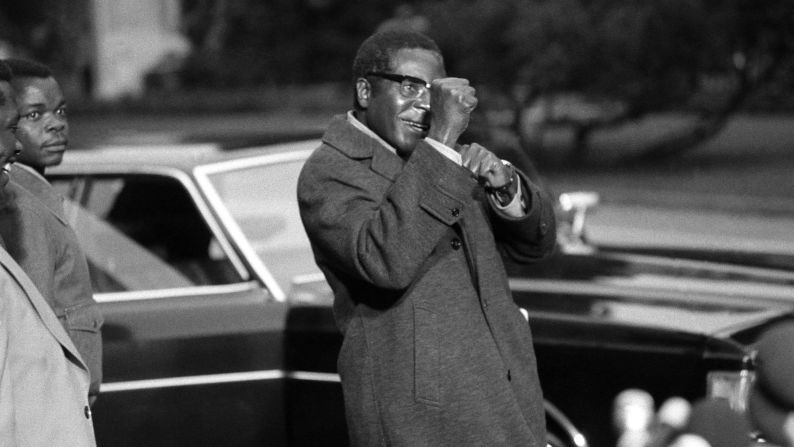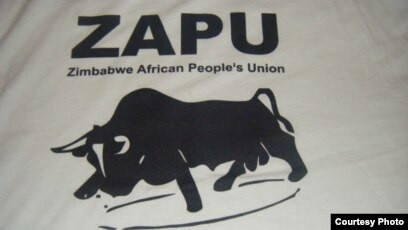
THE West’s selective outrage when it comes to the treatment or perceived treatment of white African citizens is a stark reminder of the double standards that persist in global politics.
When Zimbabwe’s then President Robert Mugabe perpetrated the Gukurahundi genocide, which targeted the people of Matabeleland and Midlands regions and resulted in an estimated 20 000 deaths and thousands of displacements between 1983 and 1987, the West remained eerily silent.
During that time, Mugabe became the darling of the West, even getting undeserved honorary degrees from Western universities.
While the people of Matabeleland were mourning the deaths, disappearances and displacements caused by Gukurahundi, the West, especially Britain, made Mugabe the poster boy of African politics and leadership.
However, when Mugabe violently took over white-owned farms in the 2000s, the West was quick to condemn him and impose sanctions on Zimbabwe and senior Zanu PF and military officials.
Five white farmers were killed during that time, in what the West rightly called gross human rights violations, yet 20 000 deaths were seen as nothing because those killed were blacks.
This dichotomy raises uncomfortable questions about the West’s motivations.
Does it genuinely care about human rights or it is only concerned about white Africans because it considers them Europeans and Westerners?
- Is military's involvement in politics compatible with democracy?
- Feature: Is Auxillia following in 'Gucci' Grace's path?
- Mnangagwa govt harasses opposition with arrests, jail
- Displaced white farmers suffer major setback
Keep Reading
The fact that Western governments and media outlets often turn a blind eye to violence and persecution suffered by black Africans suggests that the latter may be true.
The recent signing of the Expropriation Act in South Africa, which aims to address the country’s historical land ownership disparities that have kept the majority black population on the periphery of the economy, has sparked a familiar pattern of Western hypocrisy.
United States President Donald Trump has responded with threats of sanctions and aid cut, despite the fact that the Act is yet to be implemented.
Meanwhile, Trump has even offered unsolicited refuge to those Afrikaaners who may want to justify his alarmist stance by leaving South Africa, a move that reeks of paternalism and selective solidarity.
This is not an isolated incident.
During the xenophobic violence in South Africa, the 2008 episode which resulted in the deaths of at least 60 people, the West was conspicuous by its silence because then, again, only black Africans were victims.
It seems only certain lives matter, and that the West’s concern for human rights is conditional.
The same pattern of selective outrage can be seen in the West’s response to other African conflicts.
During the Rwandan genocide in 1994, which resulted in the death of over 800 000 people, where members of the Tutsi ethnic group, as well as some moderate Hutu and Twa, were systematically killed by Hutu militias, the West was slow to respond and its eventual intervention was limited.
However, when the conflict involved white farmers in Zimbabwe, the West was quick to condemn Mugabe and impose sanctions.
The West’s hypocrisy is not limited to its response to conflicts.
It also extends to its economic policies and practices.
While the West lectures African countries about the importance of democracy and human rights, it continues to support and prop up authoritarian regimes that serve its economic interests.
For example, the West has long supported the regime in Equatorial Guinea, despite its appalling human rights record.
The regime, which has been in power since 1979, has been accused of numerous human rights abuses, including torture, forced labour and extra-judicial killings.
However, because Equatorial Guinea is a major oil producer, the West has turned a blind eye to human rights abuses occurring in that country and continues to support the regime.
Rwanda’s Paul Kagame's authoritarianism has produced thousands of refugees across the world, some of them followed up and killed, but he remains a darling of the West.
Israel’s Benjamin Netanyahu, despite unleashing genocide in Gaza and Lebanon, is protected by America at all costs.
The West’s selective outrage and hypocrisy are not only morally reprehensible but also have serious consequences for African countries.
By supporting and propping up authoritarian regimes, the West undermines democracy and human rights in Africa.
By imposing sanctions on countries that challenge its interests, the West perpetuates poverty and inequality.
And by turning a blind eye to human rights abuses, the West emboldens dictators and undermines the rule of law.
Moreover, the West’s behaviour further divides African citizens racially and exposes white Africans to racism.
Selectively protecting and promoting the interests of white Africans reinforces the notion that whites are superior to blacks and that they deserve special treatment.
This, in turn, perpetuates racist attitudes and behaviour towards white Africans, who are seen as outsiders and exploiters.
It is, however, imperative for white Africans to not fall for the West’s paternalistic and hypocritical behaviour.
They must not allow themselves to be used as pawns in the West’s game of global politics.
Instead, they need to recognise that they are Africans, just like their black counterparts and that they have a shared history and destiny.
They must not let Trump and his friends’ selective outrage and hypocrisy reinforce the notion that they are somehow less African than their black counterparts.
White African citizens are not outsiders, they too, are 100% sons and daughters of the African soil.
It is time for the West to change its behaviour and start treating all Africans with the same respect, dignity and concern.
Anything less is unacceptable and perpetuates the racist and paternalistic attitudes that have long plagued Africa.
- Mxolisi Ncube is a journalist based in Johannesburg, South Africa. He writes here in his personal capacity.










